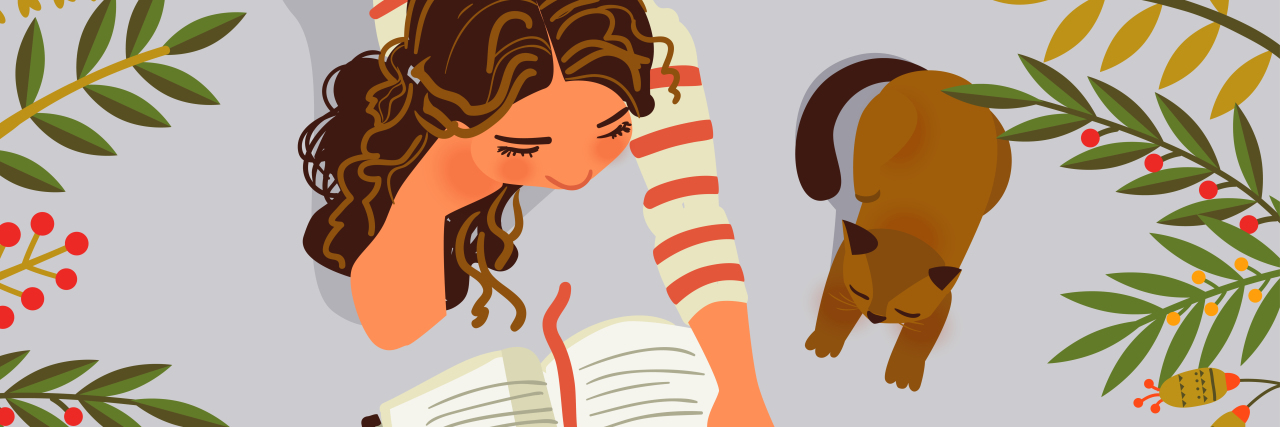The clinical term for autism in the Diagnostic and Statistical Manual is autism spectrum disorder, yet many autistic people prefer autism spectrum differences, largely on the grounds that calling one neurotype normal and another disordered is a biased judgment. I’ve made this and other arguments plenty of times myself, but right now I want to skip past all those arguments and get far more personal.
Here’s what really underlies my aversion to that particular word.
Deep breath. OK, here we go.
I have been called weird all my life. Strange. Odd. Abnormal. I’ve been the one no one wanted to play with, the one no one picked for teams, the one the other kids teased for not understanding their social intrigues and, ironically, for being far too smart as well.
The teachers weren’t much better, singling me out for everything from how I talked and played to how slowly I ate my sandwich at lunch — I was watching the other kids to try to understand them. I often had the right answer faster than the other kids, yet my teachers, while praising how smart I was, could not believe I wasn’t somehow cheating. They made me write assignments at a secluded desk, do math problems their way instead of in my head, and “show my work” to prove compliance. They actually invested a lot of effort into forcing me to think more sluggishly.
My sensory experience of the world is far more intense than for most neurotypicals, yet long before I was able to articulate that I was in pain, and not just acting out, I was given to understand in no uncertain terms that my pain was no excuse for behaving differently, and differences would not be tolerated. So by the time I could have explained myself, I had already stopped trying.
My daily experience from infancy, through 12 years of public education, and not infrequently in adult life as well, has been a continual process of being told what I was not allowed to feel, how I was not allowed to think, that I was not allowed to react naturally to pain. Of labeling me as wrong.
Many years of therapy later, I have worked through a lot of these old wounds and have begun to heal from the thousands of experiences, from tiny to traumatic, that formed my self-identity as weird and strange and abnormal.
In the process, I learned many painful truths about myself. For instance, it hurt too much to admit (even to myself) until only a few years ago, that for a very long time, I did not like myself. How could I like myself when the message I was getting the most was that I was not likable?
Undoing that damage has been a long journey, one I am still on, yet I have finally come to accept myself, to know in my heart that I am worthwhile, and to like who I am. I’m learning to accept that the challenges that come with my autism don’t have to define me. I am also learning to recognize and value the gifts of my autism, which are many.
But then I go online, or read an article, pick up a book, flip on the news, or take a professional development course, and encounter supposed experts, professionals, and scientists describing autism as a “disorder.” Describing me as disordered. Going on and on about our “deficiencies.” And it triggers every one of those not-entirely-healed wounds.
I hear it too in the mouths of friends and family who, to their credit, try very hard to understand me, and it tells me this is something they do not understand.
I even see it in the writings of neurotypicals who say they celebrate neurodiversity. Sometimes that D doesn’t land well for them, either, so they use the abbreviation ASD instead, thinking that makes it better, or disguises it, but it doesn’t.
People think “disorder” is just a word. Maybe not a kind word on its own, but in this context, it’s just part of the clinical name, so that makes it OK. They don’t get how it brings back all those times I’ve been ridiculed and excluded and made to feel that other people’s rejection of me was my fault for not being normal enough.
This is yet another case in which someone can use a word they don’t intend to be hurtful or offensive in any way, yet the word is loaded with history, and that history matters.
So this is my attempt to try to explain a little more of why that word hurts so badly, and why so many autistics care so much what that D in ASD stands for.
In the spirit of not pointing out what’s wrong without offering an alternative, may I suggest that instead of talking about autism spectrum disorder, or ASD, just talk about autism, or autistic people, or being on the spectrum, or auties or aspies or spectrumites, or better yet, if you’re talking to an individual, ask them what term they prefer.
I can’t speak for every autistic person, but for myself, I’m not so concerned with which exact term you use, so long as it is kind.
Getty image by Qvasimodo.

